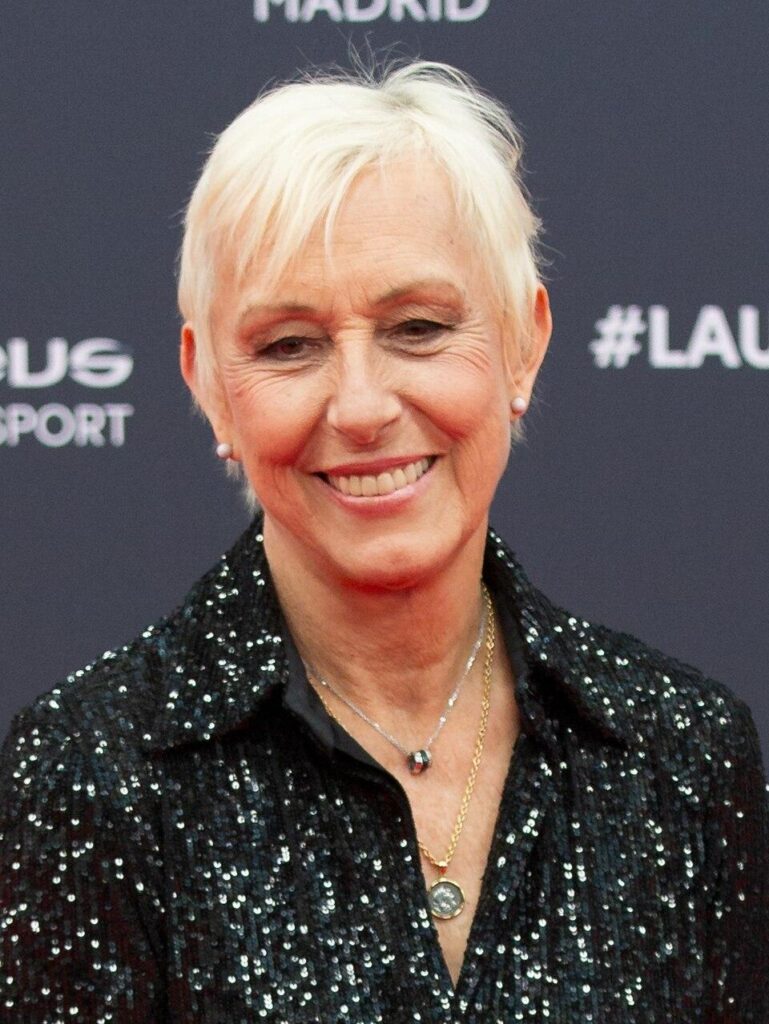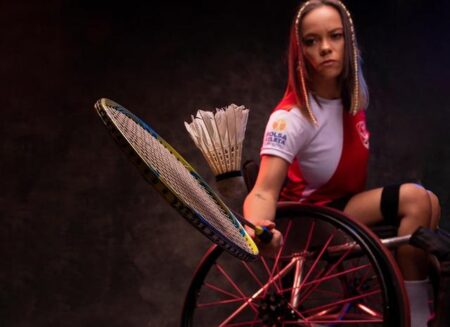Tennis legend Martina Navratilova has once again sparked controversy with her outspoken views on the participation of transgender athletes in women’s sports. In a recent statement highlighted by The Spun, Navratilova directed criticism at Democratic leaders, challenging their policies and stance on transgender inclusion in competitive female athletics. Her remarks have reignited debates surrounding fairness, biology, and gender identity in sports, underlining the complex intersection of politics and athletic competition.
Martina Navratilova Voices Concerns on Transgender Inclusion in Women’s Sports
Martina Navratilova, a legendary figure in tennis, has openly expressed her apprehensions regarding the current policies surrounding transgender athletes in women’s sports. She argues that the inclusion of transgender women in female competitions raises questions about fairness and competitive integrity. Navratilova emphasizes the biological differences that, in her view, may create an uneven playing field and potentially undermine the achievements of cisgender female athletes. Her stance has sparked considerable debate, placing her at odds with many Democrats who champion inclusive sports policies.
In a recent statement, Navratilova criticized Democratic lawmakers for what she perceives as a dismissal of women’s sports concerns, arguing that their approach prioritizes ideology over evidence. She highlighted several key points driving her conviction:
- Physical advantages: Concerns over strength, speed, and endurance differences.
- Protecting women’s opportunities: Ensuring equitable access to scholarships and professional advancement.
- Transparency in policy-making: Calls for data-driven decisions and more inclusive dialogue.
| Aspect | Navratilova’s Concern | Democratic Response |
|---|---|---|
| Fairness | Biological differences impact competition | Inclusion fosters equality and diversity |
| Policy | Advocates data-based guidelines | Supports broad anti-discrimination laws |
| Women’s Rights | Focus on protecting female athletes’ opportunities | Emphasizes intersectional inclusion |
Analyzing the Democratic Party’s Stance and Internal Divisions on Transgender Athlete Policies
Within the Democratic Party, the debate over policies affecting transgender athletes has revealed notable internal tensions. While many Democrats advocate for inclusive policies that support transgender individuals’ rights to participate in sports aligning with their gender identity, a vocal faction within the party calls for a reevaluation-particularly when it comes to competitive women’s sports. This division highlights a broader conflict between upholding LGBTQ+ protections and addressing concerns about fairness and safety in athletic competition. Party leaders have struggled to present a unified front, with some members emphasizing transgender rights as a civil rights issue, whereas others focus on protecting the integrity of women’s sports.
Key points emerging from the ongoing debate include:
- Legislative proposals: Some Democrats have supported bills ensuring transgender inclusion, while others have backed amendments introducing eligibility criteria.
- Public opinion: Party members express concern about the potential backlash from both progressive constituents and moderate voters.
- Impact on sports organizations: The NCAA and other governing bodies have become focal points where these policy discussions play out.
| Democratic Faction | Primary Focus | Policy Approach |
|---|---|---|
| Progressive Supporters | Ensuring Trans Rights | Advocate for broad inclusion without restrictions |
| Moderate Advocates | Balancing Fairness & Safety | Support eligibility standards for women’s sports |
| Party Leadership | Maintaining Unity | Seek compromise language and avoid divisive rhetoric |
Impact of Transgender Athletes on Competitive Fairness in Women’s Sports: Insights from Experts
Leading voices in the world of sports have expressed growing concern over the evolving landscape of competitive fairness as transgender athletes participate in women’s sports. Martina Navratilova, a tennis legend, recently voiced sharp criticism of certain Democratic policies, arguing that they compromise the integrity of women’s athletics. Experts highlight the physiological differences that can impact performance, emphasizing the importance of establishing clear, evidence-based guidelines. They stress that the debate transcends politics, focusing on creating a level playing field while respecting the rights and identities of all athletes.
Key concerns raised by experts include:
- Muscle mass and strength disparities after male puberty
- Impacts on records and qualification benchmarks
- Balancing inclusivity with competitive equity
- Developing sport-specific policies tailored to each discipline
| Factor | Impact on Performance |
|---|---|
| Muscle Mass | Higher retention after transition |
| Bone Density | Greater than cisgender female average |
| Endurance | Varies by sport and hormone treatment |
| Speed | Often elevated due to physiological factors |
Recommendations for Navigating Policy Decisions Balancing Inclusivity and Athletic Equity
Addressing the complex intersection of inclusivity and athletic equity requires nuanced policy-making that respects the rights and identities of all participants while maintaining fair competition. Stakeholders should prioritize transparent dialogues involving athletes, medical experts, and advocacy groups to craft guidelines grounded in science and ethics. Policies must recognize the physiological nuances without compromising opportunities for women’s sports, ensuring that all voices are heard and considered.
- Implement evidence-based eligibility criteria that balance fairness with inclusivity, taking into account hormone levels, transition timelines, and competitive impact.
- Establish appeals and review boards to handle disputes thoughtfully and consistently, avoiding politicization of athletic participation.
- Promote ongoing research to adapt policies as understanding of gender identity and athletic performance evolves.
- Encourage community engagement, fostering respect and empathy among athletes across all levels of competition.
| Policy Aspect | Recommended Approach |
|---|---|
| Eligibility Standards | Hormone benchmarks aligned with IOC guidelines |
| Review Mechanism | Independent committees with diverse expertise |
| Inclusivity Measures | Education and awareness programs for athletes |
| Fair Competition | Regular performance impact assessments |
To Wrap It Up
As the debate over transgender athletes in women’s sports continues to gain national attention, Martina Navratilova’s recent criticism of Democratic positions adds a notable voice to the ongoing discourse. Her remarks underscore the complexities and tensions surrounding gender identity and competitive fairness in athletics. With opinions sharply divided, the issue remains a contentious topic within both sports communities and political arenas, signaling that conversations-and controversies-are far from over.





